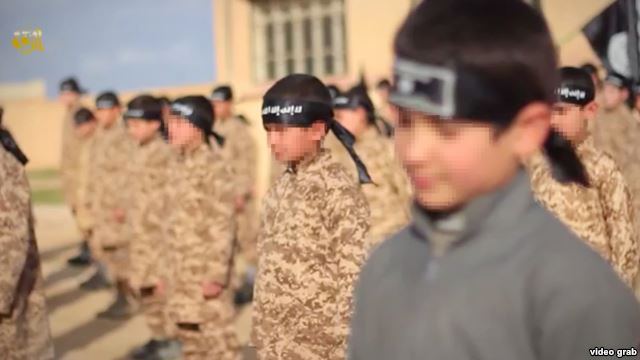Psychologists face an uphill battle in trying to de-radicalize young children who have fallen victim to the influences of the Islamic State (ISIS), according to a leading doctor within the profession. The question of why teenagers have been drawn to the group’s ideologies has confounded most, especially in light of a spate of young recruitments. The most recent incident, the first confirmed in South Africa, saw a young Capetonian girl attempt to flee the country to take up ranks with ISIS in Syria.
What has largely given strength to the group has been its intensive online recruitment campaign, focused specifically via social media. Reports have stated that many teenagers, particularly those socially isolated, have been targeted with promises of a better life in the war-torn country, as well as a fear that going against the group would be against the will of god.
According to Dr Owen Connolly, the founder of Connolly Counseling in Dublin, Ireland it was clear that ISIS were targeting those still in the developmental stage of their lives, making them easily influenced.
“They put a psychology of fear into people. With these young people they recruit, it’s a about the fear of what could happen afterwards if they don’t please god. It is a real psychological warfare that they’re carrying out, both with the children, and the countries they are engaging with,” he told VOC Drivetime.
He expressed disappointment that not much was being done in the way of counter-psychology, in a bid to negate the group’s recruitment operations.
A key area of focus for ISIS has been the targeting of children from unstable environments. With Muslims facing increased ridiculed and victimization, in large parts due to a rise in radical activity, many have being isolated from the societies in which they live. This is particularly noted in many Western countries. Another target area has been those from ‘broken homes’.
“(it is important) to point out that absent parents, an absent mother or father; they will actually select children where there is this (environment). They will try and fill a void in terms of the child’s emotional contact, to win them over to their side,” he stated.
Connolly stressed it imperative for a positive and safe home environment, as opposed to a situation where parents were almost not around. Having personally dealt with a case of a young radicalized recruit in the UK, he recalled dealing with an extremely hostile patient.
“Whilst we were able to get this person isolated from the group, we couldn’t completely isolate them because they were still in contact by phone. The phone would ring and she’d take the phone, they’d say a few words, and it was like we’d gone back to the start again. When we knew we had succeeded was when she handed me the phone, because she wasn’t going to listen to the voice anymore,” he narrated, noting that this particular case held seen the patient undertake 10 hour sessions a day, for a full 10 days.
With ISIS is continuing to make headway in its recruitment drive, Connolly said psychologists need to be aware of the sort of challenges they would soon be facing.
The case of the young Cape Town teen follows on the heels of a similar, highly publicized case in the UK where three young girls left for Syria in February. The teens are now reported to be at a training camp in the ISIS stronghold of Raqqa. VOC (Mubeen Banderker)






 WhatsApp us
WhatsApp us 


2 comments
Perhaps the MJC can incorporate a talk on “how to be a good parent to your kids” in their approach against ISIL and other terrorist groups emphasising love above above all else.
the emphasis here is on "broken homes"?, thats not entirely tru, other studies show that often the recruits hail from stable homes including the rich upper class ones, mostly its because of us not portraying islam in a style conversant with extant conditions and how islam keeps up with times but with its morality in place, everything is bidah bidah bidah, anything from a non-islamic background even if in ghair, is out of bounds etc, our leaders are often stuck in the past, and often they are the ones who preach through hate-speech whether against non-muslims or othe muslim groups they disagree with on certain issues